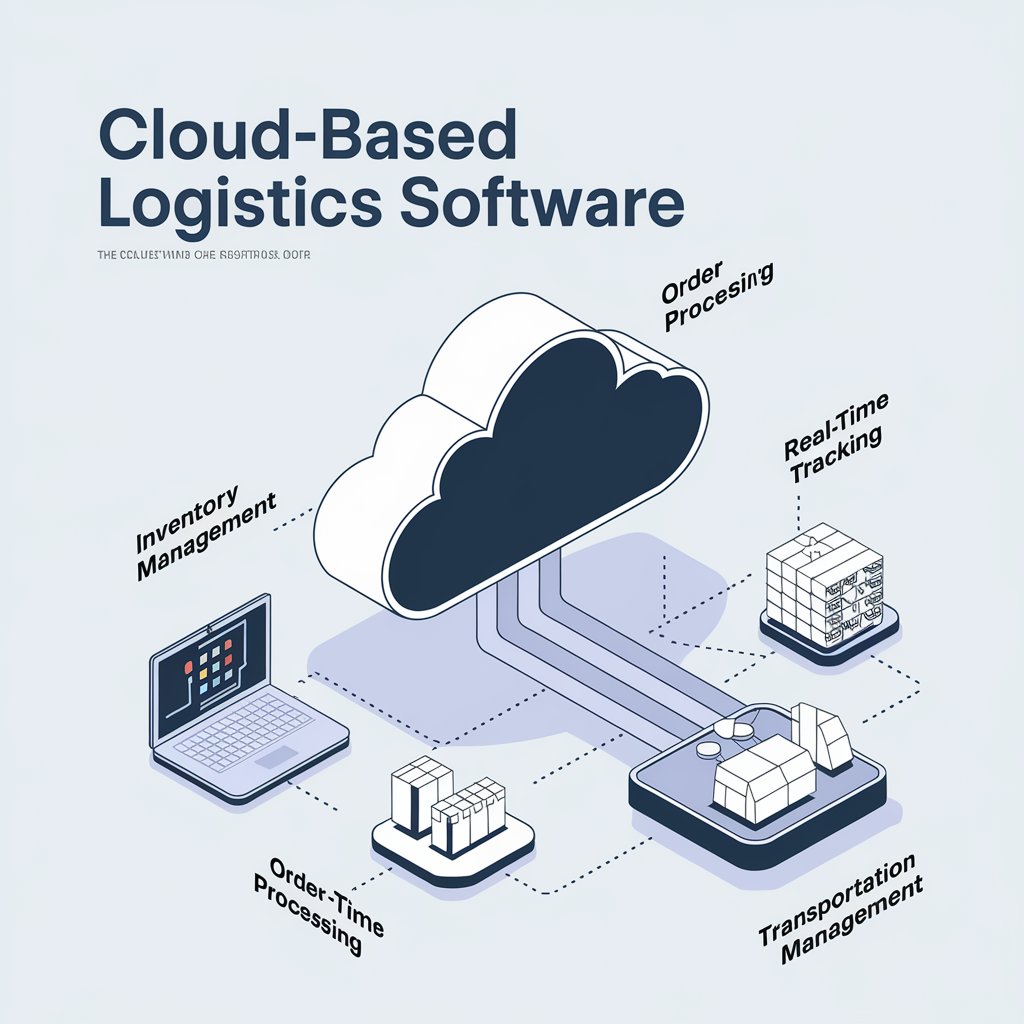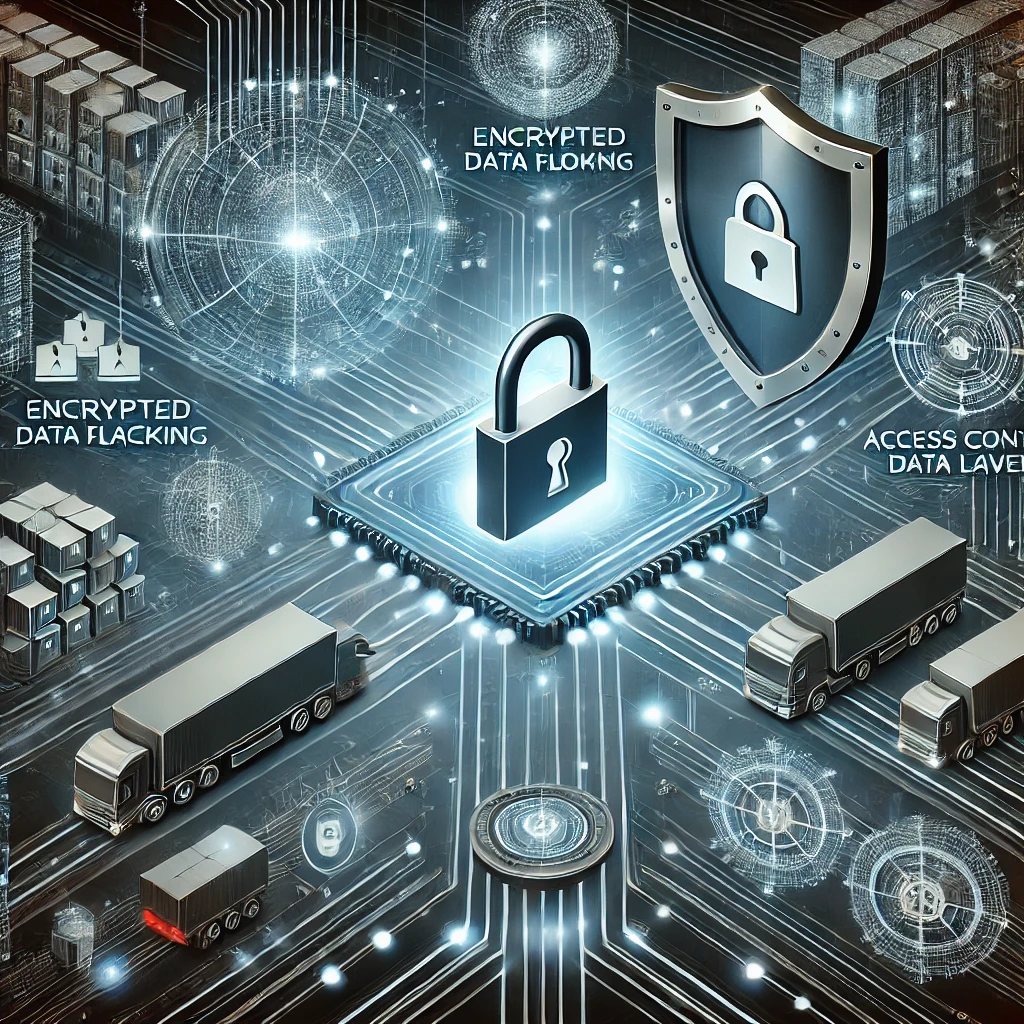Safeguarding Your Supply Chain: A Comprehensive Guide to Logistics Data Security

What is Logistics Data Security?
Logistics data security refers to the measures and practices implemented to protect sensitive information within the supply chain management ecosystem. This encompasses:
- Customer and supplier data protection
- Shipment tracking information security
- Inventory and warehouse data safeguarding
- Transportation management system security
- Electronic Data Interchange (EDI) protection
- Mobile device and app security
- Cloud storage and transmission security
- Access control and authentication measures
By implementing robust data security measures, logistics companies can protect their operations, maintain client confidence, and ensure the integrity of their supply chain.
Importance of Logistics Data Security
- Protection of Sensitive Information: Safeguard proprietary data, customer information, and operational details.
- Regulatory Compliance: Meet industry and government regulations regarding data protection.
- Maintaining Competitive Advantage: Prevent unauthorized access to strategic business information.
- Customer Trust: Assure clients that their data and shipments are secure.
- Operational Continuity: Minimize the risk of disruptions due to data breaches or cyber attacks.
- Financial Protection: Avoid potential costs associated with data breaches and loss of business.
- Supply Chain Integrity: Ensure the authenticity and security of supply chain data and transactions.

Key Aspects of Logistics Data Security
When implementing a logistics data security strategy, consider the following crucial elements:
- Data Encryption: Secure data both at rest and in transit using robust encryption methods.
- Access Control: Implement strict user authentication and authorization protocols.
- Network Security: Utilize firewalls, VPNs, and intrusion detection systems to protect network infrastructure.
- Mobile Device Management: Secure mobile devices used in logistics operations with appropriate policies and tools.
- Cloud Security: Ensure that cloud-based logistics solutions adhere to stringent security standards.
- Third-Party Risk Management: Assess and monitor the security practices of vendors and partners.
- Data Backup and Recovery: Implement regular backup procedures and disaster recovery plans.
- Employee Training: Educate staff on security best practices and potential threats.
- Compliance Management: Stay up-to-date with relevant data protection regulations and standards.
- Incident Response Planning: Develop and maintain a robust plan for responding to potential security breaches.

Implementing Logistics Data Security: Best Practices
- Conduct Regular Security Audits: Perform comprehensive assessments of your data security measures.
- Implement Multi-Factor Authentication: Enhance access security with multiple verification methods.
- Use Secure APIs: Ensure that all integrations and data exchanges occur through secure API connections.
- Employ Data Masking: Protect sensitive information by obscuring specific data elements.
- Segment Your Network: Isolate critical systems and data to limit potential breach impacts.
- Implement Endpoint Security: Protect all devices that connect to your logistics network.
- Regularly Update and Patch Systems: Keep all software and systems up-to-date with the latest security patches.
- Monitor for Anomalies: Use advanced analytics to detect unusual patterns or potential security threats.
- Develop a Security-First Culture: Instill a security-conscious mindset across all levels of the organization.
- Conduct Regular Security Training: Keep employees informed about the latest security threats and best practices.

Emerging Trends in Logistics Data Security
As technology evolves, new trends are shaping the future of logistics data security:
- Artificial Intelligence and Machine Learning for advanced threat detection
- Blockchain technology for secure and transparent supply chain transactions
- Zero Trust Security models for enhanced access control
- Edge Computing security for protecting data processed closer to its source
- Quantum-resistant cryptography to prepare for future computational threats
- Automated compliance management tools for navigating complex regulatory landscapes
Staying informed about these trends can help you develop a forward-thinking security strategy that will protect your logistics operations well into the future.
Conclusion
Implementing robust logistics data security measures is crucial for protecting your supply chain operations, maintaining customer trust, and ensuring regulatory compliance. By carefully considering the various aspects of data security and following industry best practices, you can significantly reduce the risk of data breaches and cyber attacks, safeguarding your business in an increasingly digital logistics landscape.
For businesses looking to enhance their, Linbis logistics software offers state-of-the-art security features integrated into its comprehensive logistics management platform. With end-to-end encryption, advanced access controls, and regular security updates, Linbis ensures that your logistics data remains protected at every step of the supply chain. Experience peace of mind and uncompromised efficiency with Linbis’s secure logistics solutions.
